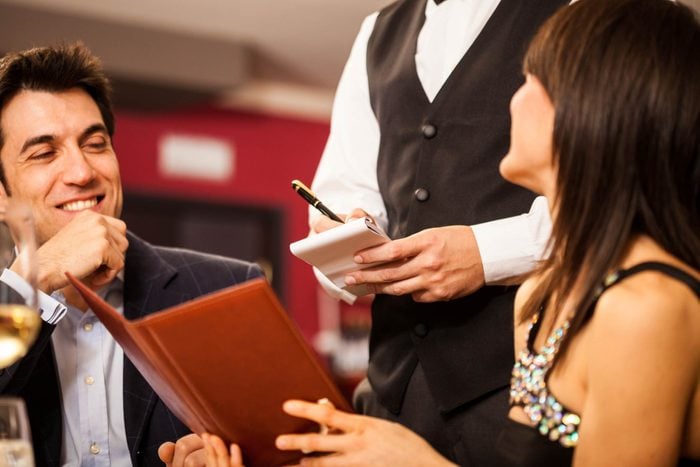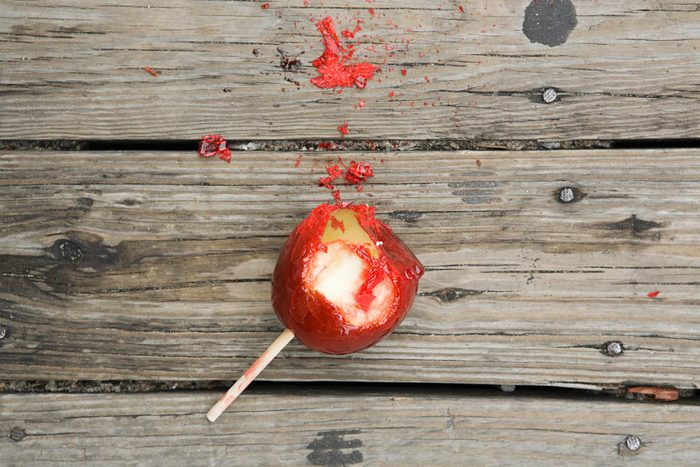
Burping and slurping at the dinner table
In China and Taiwan, burping is the highest form of flattery—it means you like the food! “The host considers the noise a compliment,” says Patricia Napier-Fitzpatrick, founder and president of the Etiquette School of New York. Slurping your noodles pays the same respect.

Arriving to a dinner date late
In India, it’s totally acceptable to show up to dinner 15 or 30 minutes behind schedule. Why? “They’re a little more relaxed about time than we are,” says Napier-Fitzpatrick. Unlike Western cultures, Indians value relationships with people over being punctual.

Chugging a glass of wine
In Georgia (the country), tradition calls for you to down your entire glass in one go after a toast. Thankfully for your liver, the glasses tend to be on the small side. These are the 13 etiquette tips to follow when dining out.

Not offering to split the bill
In France, splitting the bill is deemed “unsophisticated.” To avoid dirty stares, you should offer to pay the entire bill, or let someone else pay. Here’s the reason why splitting the bill is called “going Dutch.”

Feeding someone food with your hands
In Ethiopia, feeding each other with your hands is a gesture of hospitality. The tradition, called gursha, is intended to build trust and social bonds between those sharing the food. Got invited to a dinner party? Great! Now here’s how to impress your host.

You don’t thank a friend or family member for inviting you over for dinner
In India, thanking the host at the end of a meal is considered a form of payment and frowned upon. Instead, return the favor by inviting them over for dinner next time, which shows that you value the relationship. “But when you do, make sure it’s not nicer than their dinner for you,” Napier-Fitzpatrick says. A comparable dinner will compliment your guest without outdoing their own. If this all starts seeming like a lot, don’t worry. You can safely ignore these etiquette rules even experts don’t follow anymore.

Eating food off of the ground
In the Middle East, if you drop bread on the ground, you should pick it up, kiss it, and raise it to your forehead before putting it back on your plate. This shows respect for your food and the work that went into making it.

Not finishing everything on your plate
In many Asian countries, wiping your plate clean means that your host didn’t feed you enough. Leave a small portion of food on your plate, instead, to indicate that you’ve had your fill—otherwise, your host will continue refilling your plate until they run out of food! These are the 10 etiquette rules to follow when you’re a guest in someone’s home.

Playing with your food
In Germany, cutting up your potato with a knife implies that you don’t think it’s all the way done. To avoid insulting your host, smash your potatoes with a fork, instead (plus, you’ll get better gravy coverage!). And no matter where you eat in the world, Napier-Fitzpatrick says, “if you refuse their food, you refuse their culture, which is refusing them. So you should at least try the food, if you can.”

Swearing at the dinner table
It’s been said that in medieval France, diners would swear at a chicken before it was carved. It’s anyone’s guess as to why this was the norm. Perhaps doing so brought good luck? Next, check out 50 little etiquette rules you should always practice.
